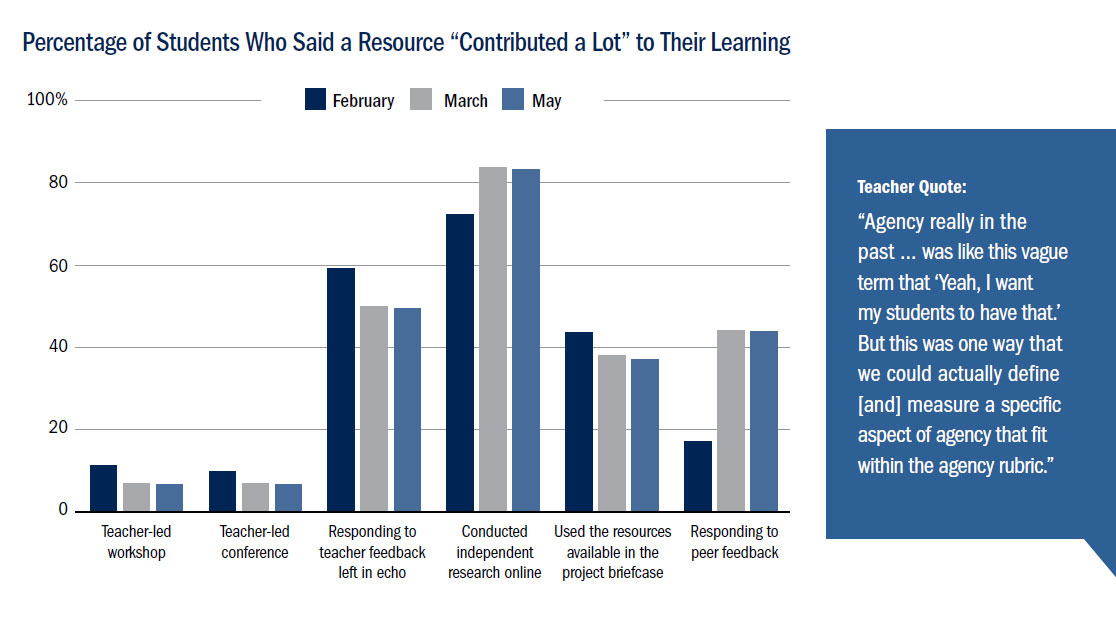Maximizing Student Agency: Implementing and Measuring Student-Centered Learning Practices
 Student agency, or the ability to manage one’s learning, can have significant effects on academic achievement as students take an active role in seeking and internalizing new knowledge. Encouraging student agency is important because:
Student agency, or the ability to manage one’s learning, can have significant effects on academic achievement as students take an active role in seeking and internalizing new knowledge. Encouraging student agency is important because:
- Students who believe that knowledge can grow over time perform better on IQ tests than students who believe intelligence is invariable.
- Students with a growth mindset are more likely to set academic goals focused on mastering content, rather than setting goals focused on achieving a particular test score or course grade.
- Students who set mastery-oriented goals tend to process information in a deeper and more organized fashion than those who set performance-oriented goals.
- The skills and behaviors associated with student agency are positively related to college and career outcomes because students are able to direct their own learning and transfer the knowledge they learned in the classroom to new settings.
The purpose of this study was to identify the instructional practices that may be useful for the development of different aspects of student agency (i.e., self-efficacy, self-regulated learning, and persistence) and determine whether these instructional practices are equally helpful for different subgroups of students.
Final Report and Key Findings
Final Report (PDF) │Technical Appendix (PDF)
- Created from discussions during teacher focus groups, the Menu of Teacher Practices identified 17 instructional practices that teachers use to develop agency at the four study schools. These practices fall into three general categories: student opportunities, student-teacher collaboration, and teacher-led approaches.
- Teachers identified supportive schoolwide processes, teacher collaboration, and professional development as the primary facilitators of implementation of instructional practices that promote agency.
- Some survey measures of student agency did not perform equally well for different groups of students. In particular, survey measures did not perform equally well across academic subjects, across students with different socioeconomic backgrounds, or for male and female students.
- In general, survey measures of student agency did not change during the school year.
Webinar
View the recording of Maximizing Student Agency: Implementation of Student-Centered Learning Approaches, which reflects on the study's key findings, their implications, and the role of networked improvement communities.


